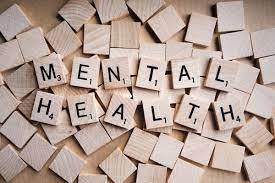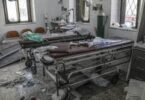Fouzia Khan Bhittani
‘‘It still haunts me. Thinking about that event makes me feel like I’m re-experiencing it. Everything comes right in front of me, that scene, his body drenched in blood, the sighs of his sister, and nobody touching the dead body. I still get nightmares even if it happened years ago,” said Khan, a senior reporter of Geo News.
Referring to militancy in Waziristan, Khan narrated the story of his friend and colleague’s death. He was killed by the Taliban and with his body was attached a note which clearly stated that nobody will touch the dead body for up to 24 hours. Khan sat there, waited for 24 hours straight and after that, his body was taken and rituals were performed. This traumatic event left a deep wound that was never healed. That event has shaken him to the level that his psychological condition is still not normal.
The psychological health of journalists is often an overlooked phenomenon. They arrive at a tragic scene even before police and paramedics and are usually the first-hand witness of destruction. Dart Center reported that around 80% of journalists are exposed to trauma related events. Although covering such distressful events are part of their job, but it comes with considerable risks. Meeting tough deadlines, nocturnal schedules, and reporting of disastrous events can lead to psychological distress and mental health problems. Among those problems, stress, depression, insomnia, burnout, anxiety, post-traumatic stress, and substance abuse are the prominent ones. Farzana Ali, Bureau Chief of Aaj TV remembering her experience of APS attack narrated, “It was a stressful event for us specially when we visited the school and saw children’s bags and blood everywhere, it was hell traumatizing. I cried during reporting, many time I couldn’t control myself when I was talking to their mothers. That was a very difficult phase and I still feel pain when I remember that event.”
In an environment where media houses and senior journalists pay little attention to the mental well-being of journalists, it is of no surprise why only few come forward with their mental health problems. When they were asked about their emotional reactions at the time of covering a traumatic event, many journalists said that they tried to suppress their negative emotions and reactions like disgust, anxiety, grief, uneasiness and tears. Nasir Dawar, Director of Wahdat news stated, “Mental health? In this profession, no one even cares about your physical health or safety.
quipment has more value than your life and this is how we reporters, and cameramen are treated by our media house.” It was a tragic event for him when they were attacked in Waziristan, and one of their crew members got injured. Upon contacting their head office and telling them the whole story the very first thing they heard from their bureau chief was “Is DSNG safe? Are all the cameras safe?”
The matter of mental health of journalists is a hard one to raise in Pakistan, as it is considered that journalists are observers. Reporting the suffering of others are their job which makes it irrelevant to report their own suffering. Many reporters recalled feeling numb, or gathering facts and capturing images like a robot on the scene.
“Most of the news in our media is dominated by negative and sad news. We are more exposed to negativity and trauma than an average person. Whether you’re are in field or on desk, you see images that are traumatic. You slowly get desensitized and a time comes when you don’t even feel any emotion that is inborn and natural,” added Nasir.
According to Reporters Sans Frontières, Pakistan is considered as one the most dangerous countries for journalism. Decades ago, journalists were seen as neutral observers, but they are now considered to be useful targets for intimidation, threats, and attacks. Irfan Khan, a senior investigative journalist and chief editor at Wadan news stated, “Pakistan has become a dangerous country for reporters. In Pakistan, elite and mafias are too strong. When you crack a big scandal of theirs, they turn against you and use every mean to keep you away from cracking that scandal. These means even include abducting, torturing and taking someone’s life.” These events have had negative consequences for Pakistani journalists.
Article 19 of the constitution of Pakistan grants every individual the freedom of expression, but according to the report of Freedom Network, a significant number of Pakistani journalists have faced attempted murder, abductions, illegal detentions by official authorities, physical assaults and verbal threats during the last few years. “For an investigative journalist, it is a rule to keep your safety first before breaking a news. If you think breaking a certain kind of news will bring a threat to your life, you shouldn’t break it as no news is important than your life. Many journalists ignore this rule which ultimately result in negative consequences,” said Irfan.
Journalistic stereotypes concerning bravery has also undermined the process of acknowledging underlying mental health issues, thus leading affected journalists to suffer in silence. Many journalists had been plagued with unresolved mental health issues and had suffered from work-related trauma and substance abuse. Self-medication, however, is an on-going, hardly tackled phenomenon among journalists. It is also not surprising that a lot of these problems go undiagnosed. “I take a lot of medicines. I think I’m alive because of them. To get rid of those nightmares and insomnia I have to take sleeping pills. Depression and anxiety are killing me but I can’t help it out. In our profession smoking cigarette, taking pills and use of alcohol is common because we have no working schedule, we work day and night. What people use depends on, what calms them down,” said Khan.
It has also been seen that many journalists believe that they are immune to the impact of trauma, however, the reality is somewhat different. Many journalists have developed certain coping mechanisms to deal with emotional effects of trauma, but many others are still vulnerable. Literature shows that usually journalists are involved in suppressing their emotions and it is the most common form of coping mechanism in this field. These coping mechanisms like substance use substance use, ignorance and desensitizing oneself from the surrounding might prove effective for a shorter period of time, but these mechanisms result in emotional damage. “In our field it is considered a taboo to talk about your mental health. If someone seeks psychological help, or talks about his mental condition, he is considered insane,” added Farzana.
Mental health is important because it plays a crucial role in our overall well-being and quality of life. Our mental health affects how we think, feel, and behave, and impacts our ability to cope with stress, maintain relationships, and engage in daily activities. Many professionals are afraid of being judged by their peers and suffer in silence instead of taking any psychological help.
They should be educated about the role of trauma therapists and instead of fighting alone, one should seek professional help. Their Employers can also provide resources for self-care, such as access to counseling and mindfulness workshops. Such workshops will help journalists build their skills of managing their emotions during stressful events, which can improve their mental health. “Those workshops proved highly effective as emotions related to that trauma were released. I also went on family holidays which helped me a lot in relaxing my mind,” said Farzana.
Journalists often experience high levels of stress and pressure due to the nature of their work so, they should be encouraged to take breaks and prioritize their metal health by promoting work-life balance. A positive work culture should be fostered that prioritizes mental health, such as open communication and a supportive workplace environment as it can help a journalist vent out his emotions.
Seminars should be arranged where professionals who have undergone such field work and have cope successfully should be invited to train new recruits and to share their experiences. A medium, that can be in the form of trauma centers should be made where they are able to share what’s troubling them. Last but not the least, your mental health is everything, prioritize it. Healing takes time, so be patient with yourself as it took a long time to accumulate the pain. Ask for help because it is a courageous step so, prioritize your mental health before it is too late.
fouzikhan94@gmail.com







